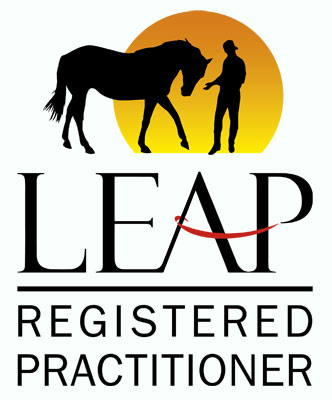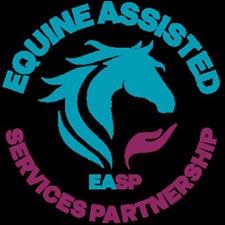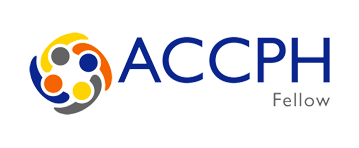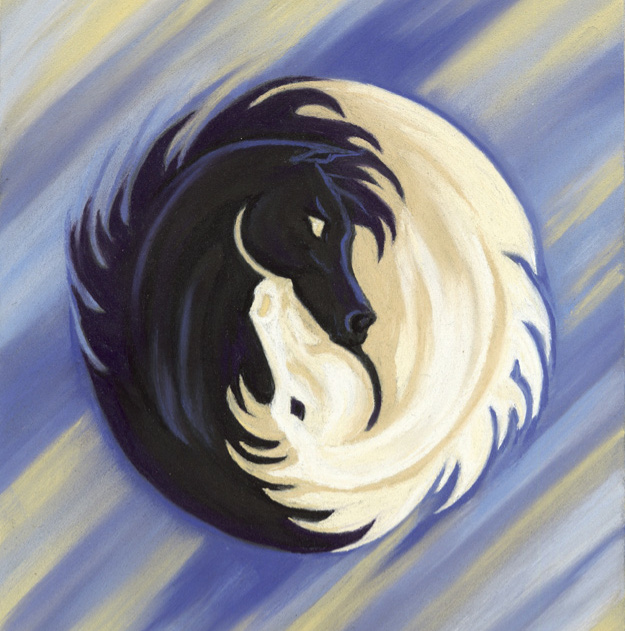
Blog
Horses as Co-Dependency Healers
2 September 2013
Key Concepts: Co-dependency; Projection; Sense of Self; Personal Space and Boundaries; abuse; healthy relationship dynamics; stress; balance.
Horses are wonderful role models to help people heal their co-dependent relationship with others.
Horses are fully self-contained yet at the same time, they are wholly inter-dependent with their herd members, as they are highly sociable, herd animals.
This paradoxical way of being is often extremely hard to learn for many people struggling to break co-dependent habits. However, over time and with regular time spent around these peaceful animals, it is possible to learn from them and start to incorporate more healthy relationship patterns in other areas of life.
I often see horse owners develop a highly co-dependent attachment to their horse/s, and usually with one favourite horse in particular. The person and horse become very bonded and close, yet over time and without vigilance to maintain a sense of clear separateness, the relationship often deteriorates into an unhealthy one.
The horse becomes a displacement for the person owning their true feelings and state of being, for example: “my horse often shys at such and such...”, or “he doesn’t like going down that particular road, so we don’t go that way”. Here the horse becomes a carrier for the deeply seated and unconscious fears in the person. And the focus is then on fixing the horse and his/her problems.
The other pattern that tends to develop is a deeply held belief that the person can’t bear to think of the horse being injured, unwell, sold or dying, as the dependency on the horse has becomes so great, that any pain or distress in them becomes unbearable for the person. “I couldn’t bear it if anything happened to him”; “I wouldn’t be able to ever sell my horse”. "They have a home for life with me..." No matter the bills may be piling up, or the horse and owner aren’t actually compatible for what they each wish to do in life.
And so, as in many human relationships, horse and owner tend to stay together, in misery, in a bad relationship dynamic, dealing with a host of problems that develop over time.
Two of the wonderful benefits I’ve experienced from being around horses and being open to learning from their way of relating, is:
a) To develop a much stronger sense of self
b) To maintain a sense of being separate and yet related to others.
Just spending time with horses, shows me how calmly and happily they spend time on their own, attending to their own needs, whilst fluidly moving in and out of their herd, each moment being different. And as they tend to do this with no sense of urgency or stress, unless put under stress by human interventions I might add, they also enable us to learn from their very laid-back way of moving through each moment, with no recourse to past difficulties, and no worries about tomorrow.
A central piece of the what I teach in Equine Facilitated Learning (EFL) is personal space and boundaries in every sense: physical, emotional, psychological and spiritual.
When horses set boundaries with their fellow herd members, they do so in the moment and then move on. There is no delay, there is no resentment and there is no “pay-back”. They don’t stand there for hours, weeks or months harbouring a grudge against the horse that just moved them around or told them to back off out of their space, or planning how to “get them back”. They deal with the infringement of their personal space in the moment, then move on to the next moment.
In many human relationships because of unhealthy relationship patterns taught to us by our parents and others in early life, this is not usually the case. Often people feel bad or wrong for setting a boundary to take care of themselves. Often they either capitulate or set the boundary but then feel guilty and apologise, fearing the response or recrimination of the other. People who’ve experienced particularly abusive relationships, and here I don’t just mean physical or sexual abuse, but also emotional and psychological abuse, find setting boundaries extremely difficult and stressful.

Equine Facilitated Learning is very healing for such people, as the horses are gentle, non-judgemental and loving in how they guide people through the process of learning to set boundaries, they can help us change a lifetime of unhealthy relationship dynamics, and stay in relationship; the opposite of co-dependency.
It can take years to change these patterns, but by spending time observing and interacting with horses, it is possible to begin to embody a cleaner, healthier way of moving through life, with much less stress.
© Angela Dunning, September 2013, up-dated March 2016
Photo thanks to Lynda J. Watson of HorseTouch








